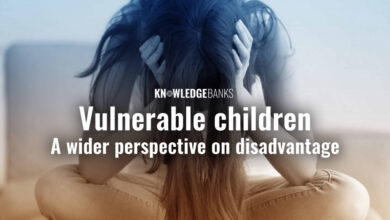Social Policy for Children and Families in Zimbabwe: A Critical Overview

By Fungai Matarise
Social policy for children and families in Zimbabwe encompasses a range of measures, laws and programs. Their design is to promote the welfare of children and strengthen family units. They address issues such as education, healthcare, child protection, poverty alleviation and parental support. Social policies in Zimbabwe aim to protect and provide for children and families, particularly during challenging times. However, the effectiveness of these policies is in question, with concerns on the reach and impact of existing programs.
Current Challenges Faced by Children and Families in Zimbabwe
Zimbabwe faces significant socio-economic challenges that affect children and families. The economy has collapsed, leading to food insecurity and job losses. Around 4.3 million people in rural areas, including children, are food insecure. The World Food Programme estimates that at least 60% of the population needs food aid. Moreover, the COVID-19 pandemic further strained resources. With many children turning to vending as a means of survival. Also, over 20,000 children reported to have engaged in this activity.
The National Action Plan for Orphans and Vulnerable Children
Given the challenges the country faces, social policy is in use to address some of the hardships faced. Since 2004, Zimbabwe has had a National Action Plan for Orphans and Vulnerable Children. It intended to guide the provision of care for these children. However, critics argue that the plan lacks clarity and implementation is not effective. Key issues include a lack of clear definitions for “orphans and vulnerable children”. Also, there is insufficient data on the number of children at risk. Additionally, government interventions fail to reach those who need them most. The plan includes a cash transfer system. However, evaluations show that the number of beneficiaries is significantly lower than the number of families in need.
Child Labour and Exploitation
Despite a legal working age of 16, children as young as 10 and 12 are selling goods on the streets. This exposure to the street environment poses risks such as exploitation, abuse and missed school opportunities. These have far-reaching effects on their development. The International Policy Centre for Inclusive Growth suggests involving families and the community in child protection as part of the third phase of the National Action Plan, but the government’s capacity to implement this is limited due to the economic crisis and a lack of staff in the Ministry of Social Services.
Recommendations for Improving Social Policies
To address the current challenges, policymakers and social service practitioners should consider expanding social protection programs to cover more people. This could involve increasing the social protection budget to accommodate the growing numbers of families with children in need. A bottom-up approach, where collaboration with affected and at-risk families is prioritised, could be effective. Also, participatory methods such as workshops could be employed to gather insights from the community on how to better tackle child labor issues within the current economic conditions.
In conclusion, while social policies in Zimbabwe aim to safeguard children and families, there is a pressing need for improved strategies that effectively reach and serve those most in need. Therefore, focusing on enhancing data collection, strengthening the implementation of existing plans and fostering community participation, the government can work towards creating a more resilient and supportive environment for children and families in Zimbabwe.



